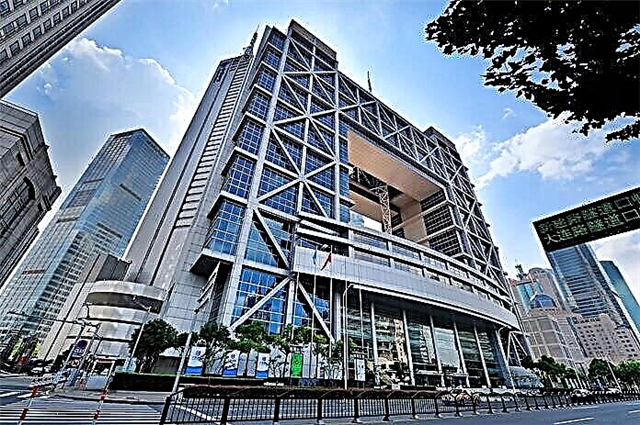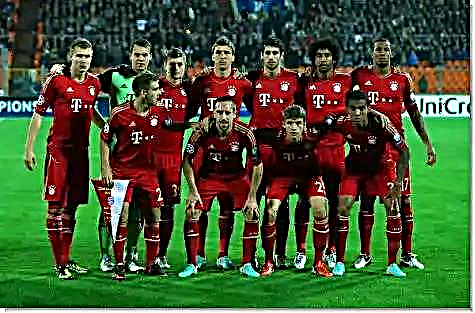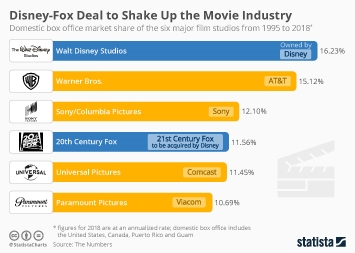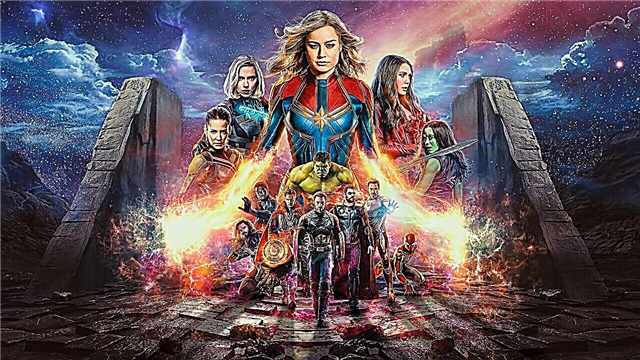For several years, the American non-profit organization Project Management Institute has been compiling a list of the most important projects in the history of mankind. The elect includes the most famous and influential of them, who made a breakthrough in their field and thereby irrevocably changed it.
Projects can be very different - from engineering to healthcare, from agriculture to video games, from logistics to architecture. Leading experts of the region, academicians and journalists selected them from a list of more than 1000 items. And we will talk about the 10 most influential financial projects from the world list.
10. E-Trade
 Now it’s hard to believe, but back in the early 90s, stock trading on the Internet using a personal computer was considered something of a fantasy. E-Trade has made the dream a reality. Already in 1991, she launched the first program for online trading. And by the end of 2018, the company had 4.9 million brokerage accounts, 282 thousand with small transactions for the year and 30 branches around the world.
Now it’s hard to believe, but back in the early 90s, stock trading on the Internet using a personal computer was considered something of a fantasy. E-Trade has made the dream a reality. Already in 1991, she launched the first program for online trading. And by the end of 2018, the company had 4.9 million brokerage accounts, 282 thousand with small transactions for the year and 30 branches around the world.
9. John Bogle Index Fund
 When John Bogle, the founder of The Vanguard Group, an investment company, decided to create the world's first index fund and make it available to the general public, other financiers turned a finger at the temple. He was considered crazy, and the initiative he took was called "Bogliness" for the eyes.
When John Bogle, the founder of The Vanguard Group, an investment company, decided to create the world's first index fund and make it available to the general public, other financiers turned a finger at the temple. He was considered crazy, and the initiative he took was called "Bogliness" for the eyes.
But Bogle laughed last. Not only did he win in the financial field - over the past years, his company's assets grew from $ 1.8 billion to $ 600 billion - but with his innovation, he made investing easier and more profitable for ordinary people.
8. Venmo
 This mobile application was born in 2009 and greatly simplified payment via the Internet. With it, people could transfer funds from one application account to another. True, both the sender and the receiver needed to live in the United States.
This mobile application was born in 2009 and greatly simplified payment via the Internet. With it, people could transfer funds from one application account to another. True, both the sender and the receiver needed to live in the United States.
Currently, about 40 million people use the application. Owned by PayPal. However, due to the fact that the connection is peer-to-peer, personal information may leak. To prevent this, the company regularly updates its security protocols.
7. Shanghai Stock Exchange
 China is a strange mixture between capitalism and the worship of the red banner and grandfather Mao. The Chinese do not mind working and earning, including trading on the exchange, but they want to do this on their own terms.
China is a strange mixture between capitalism and the worship of the red banner and grandfather Mao. The Chinese do not mind working and earning, including trading on the exchange, but they want to do this on their own terms.
An example of this is the Shanghai Stock Exchange. It was opened in 1990, almost half a century after the communist revolution in China. Now the exchange has become the largest in the whole country, and in terms of transactions it has reached the fourth place in the world.
6. Nasdaq
 The first stock market to replace the traditional trading floor with an automated computer network.
The first stock market to replace the traditional trading floor with an automated computer network.
This innovative solution has turned Nasdaq into the second largest stock exchange in the world; at the moment, it is second only to New York. She specializes mainly in high technologies: electronics, software, computer solutions and so on. At the moment, more than 3,000 companies are trading in shares on this site.
5. COSMOS Package Tracking System
 FedEx is one of the rare brands that, in social creation, has long merged with the service they provide. For many Americans, the verb fedex means night delivery. And all this happened thanks to one project, as a result of which a whole delivery tracking system was created, which revolutionized e-commerce.
FedEx is one of the rare brands that, in social creation, has long merged with the service they provide. For many Americans, the verb fedex means night delivery. And all this happened thanks to one project, as a result of which a whole delivery tracking system was created, which revolutionized e-commerce.
COSMOS is an online system for customers, operations and services, which allows customers to track their parcels all the way from the supplier to the buyer. The simplicity, convenience and transparency of the system significantly increased the popularity of online purchases. Why, thanks to Cosmos, such trading giants as, for example, Amazon, were born.
4. Bitcoin
 In 2008, a programmer under the pseudonym Satoshi Nakamoto published a text in which he expressed the idea of creating a digital currency. It should be completely secure, confidential and completely transparent.
In 2008, a programmer under the pseudonym Satoshi Nakamoto published a text in which he expressed the idea of creating a digital currency. It should be completely secure, confidential and completely transparent.
And Nakamoto brought his idea to life. The mysterious programmer mined the first block of bitcoins, and also created a way to track each of them - blockchain, P2P network. Each item of the "journey" of bitcoins is available for viewing by any network user. So the author of bitcoins completely protected his brainchild from fakes. And all this happened without the slightest involvement of governments, banks and other financial institutions. Over the years, the popularity of both bitcoins and other cryptocurrencies has skyrocketed, making Bitcoin one of the most influential business projects in the world.
3. M-Pesa Mobile Microfinancing Platform
 Three leaders among the most influential financial projects in the last 50 years are opened by M-Pesa. Experts believe that this is one of the most advanced initiatives in the field of money transfers, finance and microfinance - and all this is based on mobile communications.
Three leaders among the most influential financial projects in the last 50 years are opened by M-Pesa. Experts believe that this is one of the most advanced initiatives in the field of money transfers, finance and microfinance - and all this is based on mobile communications.
The project was launched in 2007 by Safaricom, which is owned by communications provider Vodafone and the government of Kenya. Since its launch, the M-Pesa system has expanded to six other countries, including Tanzania, Egypt and Ghana. With it, Africans pay salaries, book tickets, pay bills, insurance, give out loans and much, much more.
2. Alibaba Singles Day
 What Russian doesn’t like to buy in China! And the day is especially dear to our compatriots on November 11 (11/11), known as the “Singles Day”, when the Alibaba Group, the online trading mega-concern, holds the most ambitious sale of the year.
What Russian doesn’t like to buy in China! And the day is especially dear to our compatriots on November 11 (11/11), known as the “Singles Day”, when the Alibaba Group, the online trading mega-concern, holds the most ambitious sale of the year.
Alibaba Singles Day's sales statistics are staggering. Last year, goods worth a total of 38.4 billion US dollars were sold. Moreover, the record of the previous 2018 was surpassed by almost 26%! For comparison: these figures are more than 2.5 times higher than Black Friday and Cyber Monday sales in the United States of the same year.
1. Euro
 The most important among financial projects, according to the Institute for Project Management, is the introduction of the euro. And no wonder: the euro is the national currency of the 19 countries of the European Union; In total, 343 million people live in the Eurozone. In many of the EU countries, the new monetary unit either exists alongside the national one, or has long ousted the “indigenous people”. And in countries not directly affected by currency unification and not members of the EU, the euro exists as a reserve monetary unit along with the US dollar.
The most important among financial projects, according to the Institute for Project Management, is the introduction of the euro. And no wonder: the euro is the national currency of the 19 countries of the European Union; In total, 343 million people live in the Eurozone. In many of the EU countries, the new monetary unit either exists alongside the national one, or has long ousted the “indigenous people”. And in countries not directly affected by currency unification and not members of the EU, the euro exists as a reserve monetary unit along with the US dollar.
The introduction of the euro is not an easy task and it took literally decades. Financiers began to think about a common European currency in the mid-70s, but real steps in this direction began to be taken after the signing of the Maastricht Treaty on the establishment of the EU in 1992. And the first countries joined the European space after only 7 years.
Undoubtedly, the creation of the European Union and the emergence of a new common currency has dramatically changed the work of many financial systems in European countries. And the goal of creating the euro as a competitor to the dollar, despite all the financial crises regularly shaking the EU, was generally achieved. At present, the share of the dollar in world trade is 40%, while the share of the euro is behind it by some 5%. 35% of all transactions are paid in euros.












